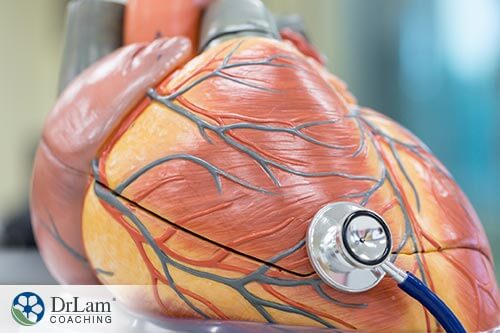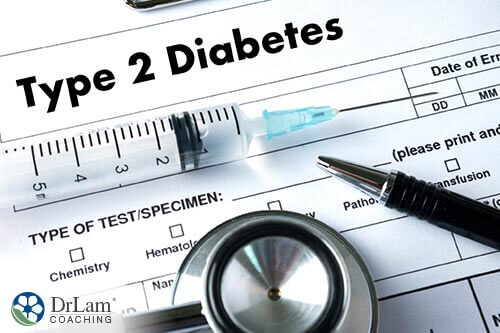 As has already been stated, you must consume protein on a daily basis because your body does not store it as it does fat. There are a lot of negative effects of too little consumption of protein. One of these is loss of muscle mass and the accompanying weakness. Consuming too little dietary protein leads to a lack of the amino acids in protein that help break down other proteins you consume. If you don’t have sufficient levels of these amino acids, your body will begin breaking down muscle fibers to increase the supply. This can lead to wasting of your muscles.
As has already been stated, you must consume protein on a daily basis because your body does not store it as it does fat. There are a lot of negative effects of too little consumption of protein. One of these is loss of muscle mass and the accompanying weakness. Consuming too little dietary protein leads to a lack of the amino acids in protein that help break down other proteins you consume. If you don’t have sufficient levels of these amino acids, your body will begin breaking down muscle fibers to increase the supply. This can lead to wasting of your muscles.
Older adults who don’t exercise sufficiently and don’t consume enough protein often experience this condition.
Protein is a major component of the multiple facets of your immune system. It makes up antibodies, blood proteins, white blood cells, and numerous immune molecules, such as cytokines, chemokines, interferons, and interleukins. In your immune system, these proteins work together to fight the foreign invaders that attack your body, whether they are bacteria or viruses, chemical or physical threats. In many cases, these proteins are made on an as-needed basis as any threat occurs. If you lack sufficient dietary protein, your immune system may not be able to manufacture these proteins when needed, increasing your risk of infection.
If your level of dietary protein is too low, it is detrimental to your bones. Your protein levels and calcium levels are closely connected. A protein level that is too low inhibits your body’s ability to absorb calcium, leading to an increase of calcium in your urine. In this case, your body turns to your skeletal system as a source of calcium. All of your cells require a sufficient level of calcium in order to function properly. Over time, this low level of dietary protein can lead to a decrease in bone density and faster loss of skeletal mass.
From the information in ads and infomercials, you would think that the more dietary protein you consume, the better. However, that isn’t the case. There are some significant health problems that can result from too much protein in your diet.
To be sure, for people with no health issues, a high protein diet for a short duration can be beneficial. It is a good way to lose weight.
But there are risks associated with high-protein, low-carbohydrate diets over a long period of time. The specific risks are still being studied by researchers.
Many high-protein, low-carb diets result in nutritional deficits that include too little fiber. Headaches, constipation, and bad breath are some of the issues with this kind of diet.
If your diet consists of high levels of dietary protein from red meats and full-fat dairy products, you increase your risk of developing heart disease. If you have kidney problems and eat this kind of diet, you risk more severe problems with kidney function because of the burden you place on your kidneys, forcing them to eliminate the waste products of the metabolism of protein.
When you choose to go on a high-protein diet, choose your protein source wisely. Beans, nuts, fish, skinless poultry, pork, low fat dairy, and lean meat are better choices. Don’t eliminate carbs. Choose wisely in this area, as well. Whole grains, vegetables, and fruits that are high in fiber and dense in nutrients are good choices. Complex carbohydrates are the best.
Little real scientific evidence is available regarding what some experts claim about high-protein diets putting extra demands on the kidneys. Still, in spite of a lack of this kind of evidence, if you have kidney disease or diabetes, a high-protein diet may not be the best way to lose weight.
If you choose to follow a high-protein diet, be sure to choose your proteins from lean protein sources. These would include beans, peas, soy, tofu, turkey, fish, and chicken. Diets with these sources of protein do little to improve triglyceride levels or HDL levels, but also don’t usually change LDL levels. They do contain more fats overall, more saturated fats, and more cholesterol. Be aware of the Academy of Nutrition and Dietetics recommendation to consume less trans-fat and saturated fats.
 Consumption of large amounts of red meat has been linked to increased risk of heart disease. There also is an increased risk of prostate cancer in men if the red meat is cooked at high temperatures.
Consumption of large amounts of red meat has been linked to increased risk of heart disease. There also is an increased risk of prostate cancer in men if the red meat is cooked at high temperatures.
High-protein diets decrease the body’s ability to utilize calcium. This leads to increased loss of calcium through urine. Thus, you must increase your calcium intake daily to compensate for this loss. Calcium uptake is increased, bone health is supported, and bone density is improved in high-protein diets.
At times, on high-protein diets, the feeling of fatigue can result, and can even become quite strong. You must then increase your intake of complex carbohydrates to provide your body with the raw components of energy development. Carbs are more easily digested than proteins and will supply energy for your body and brain to use.
There is a growing body of evidence that suggests high dietary protein levels can stop autophagy and stimulate mTOR. By stopping the process of autophagy, high levels of protein prevent your body from cleaning out debris and dead or non-functioning cells. Even if you can keep your glucose and insulin levels low, too much protein stimulates mTOR. This stimulation of mTOR is associated with nearly all cancers.
Current recommendations for the amount of protein to consume and not activate mTOR is .75 grams per kilo of lean body mass. Even less than this could be adequate. When mTOR is suppressed, your body will conserve protein and improve the repair and maintenance function. Considering how important protein is in muscle maintenance and growth, you will have to find the right balance for your body.
Research has indicated restriction of dietary protein intake to be more important than restriction of carbohydrates. The key, once again, appears to be activation of mTOR. Results of the research showed limiting protein intake and substituting carbohydrates optimized longevity and health results.
This research only examined carbohydrates and proteins. It did not look at fats. Probably the best option for diets is to consume high-fiber carbs, high-quality healthy fats, and decrease the amount of dietary protein to be only what your body needs.
Through research, it is known that proteins and environmental toxins are responsible for most food allergies. Other than this, there is little scientific evidence regarding the role of protein in chronic illness conditions in healthy people.
But overall, there is evidence that protein plays a major role in health. There also is sufficient evidence to show good protein choices can decrease the risk of major chronic illness conditions and improve longevity.
Researchers at the Harvard School of Public Health have found that eating small amounts of red meat on a continuous basis can increase your risk of developing heart disease or suffering a stroke. Their findings also included an increased risk of dying from cardiovascular disease or any other cause. But replacing red meat with protein from healthy sources may reduce these risks.
 One study followed 120,000 subjects from the Nurses’ Health Study and Health Professionals’ Follow Up Study for more than 20 years. Their finding was that subjects who consumed an additional three ounces of unprocessed red meat daily increased their risk of dying from cardiovascular causes by 13%.
One study followed 120,000 subjects from the Nurses’ Health Study and Health Professionals’ Follow Up Study for more than 20 years. Their finding was that subjects who consumed an additional three ounces of unprocessed red meat daily increased their risk of dying from cardiovascular causes by 13%.
If the red meat consumed daily was processed, the risk increased significantly for even lower amounts consumed. For every 1.5 ounces of processed red meat consumed, the risk of dying of cardiovascular causes increased by 20%.
Researchers estimated a 10% decrease in these deaths if the participants in the study simply reduced their total consumption of either red meat or processed red meat to less than half a serving per day.
There is some research evidence that indicates eating a high-protein diet can be beneficial for your heart health, but only if the source of the protein is healthy.
A study of 80,000 women lasting for two decades showed a 30% lower risk of heart disease with a low-carb diet consisting of high vegetable sources of fat and protein. This was in comparison with women who consumed a high-carb, low-fat diet. Consuming a low-carb diet with high levels of animal fat and protein did not have this same reduction in risk of heart disease.
A randomized trial study called the Optimal Macronutrient Intake Trial for Heart Health also found support for healthy heart effects when consuming healthy proteins instead of carbs. This diet lowered blood pressure and LDL cholesterol more effectively than a healthy high-carb diet.
Another study, called the Eco-Atkins weight loss trial, consisted of a high-carb, low-fat vegetarian diet and a low-carb vegan diet that had high levels of vegetable protein and fat. Weight loss was similar in both diets, but the vegetarian diet also showed improvement in blood lipids and sugar.
A Swedish study apparently showed completely opposite results. But this study did not evaluate the sources of proteins consumed by their subjects. Most of the protein consumed by the women in this study came from animal sources.
The risk of developing diabetes appears to depend on the quality of protein rather than quantity. One recent study evaluated two groups of subjects. One group consumed red meat and processed red meat, and the other group did not. The study found those who consumed red meat or processed red meat had a higher risk of developing Type 2 diabetes. For every added daily serving of red meat, the risk increased by 12%. For every added daily serving of processed red meat, the risk increased by 32%.
 The risk of developing Type 2 diabetes decreased by 16-35% if one serving of nuts, whole grains, or low fat dairy products was substituted daily for one serving of red meat.
The risk of developing Type 2 diabetes decreased by 16-35% if one serving of nuts, whole grains, or low fat dairy products was substituted daily for one serving of red meat.
Another study supported these findings. Results showed people who began eating more red meat than usual to have the risk of developing Type 2 diabetes over the following four years increase by 50%. This same study found people who lowered their consumption of red meat decreased their risk of developing Type 2 diabetes by 14% over the next ten years.
A 20 year study of women looking at Type 2 diabetes and low carb diets showed a modest decrease in the risk of developing Type 2 diabetes with low-carb diets high in vegetable fats and protein. Low-carb diets with high levels of animal protein and fat did not give this result.
AFS is a condition that can result from unrelenting stress overburdening the adrenal glands. Any kind of stress sets in motion the hypothalamus-pituitary-adrenal (HPA) axis. This ends in the adrenals secreting cortisol, the stress-fighting hormone, to counter the effects of stress. In ideal conditions, once the stress is over, there is no need for cortisol. However, in our culture, stress continues without let up. This can result in your adrenals becoming fatigued, unable to secrete sufficient amounts of cortisol to deal with the stress. Such a condition sets in motion a series of vague symptoms that can increase dramatically with time until the sufferer is almost incapacitated.
 Unfortunately, AFS is not recognized by conventionally trained physicians. This leads them to only treat isolated symptoms, or, at best, individual organs that may be affected. Such an approach is both inefficient and ineffective. A better viewpoint is that of the NeuroEndoMetabolic (NEM) approach to stress response. This approach is more comprehensive in both assessment and remediation efforts. It states that there are six organ systems that are interrelated and which interact in the event of stress. What affects one system will affect some or all of the others.
Unfortunately, AFS is not recognized by conventionally trained physicians. This leads them to only treat isolated symptoms, or, at best, individual organs that may be affected. Such an approach is both inefficient and ineffective. A better viewpoint is that of the NeuroEndoMetabolic (NEM) approach to stress response. This approach is more comprehensive in both assessment and remediation efforts. It states that there are six organ systems that are interrelated and which interact in the event of stress. What affects one system will affect some or all of the others.
Making changes to diet appears to be one of the components of dealing successfully with AFS. One recommendation is to combine good-quality proteins with complex carbs and good fats.
Adding exercise to your regimen of dealing with AFS will also necessitate increased protein intake. Moderate exercise on a regular basis is a good way to combat the effects of AFS. Protein is needed to handle the physical demands of exercise. Increased exercise leads to increased wear on your body, making higher levels of protein necessary.
The amino acids in protein are also needed for producing signaling molecules in your brain. Neurotransmitters dopamine and norepinephrine come from tyrosine, which is present in consumed protein. Excessive norepinephrine can lead to a body in a state of alert and anxiety. This is commonly seen in those with advanced adrenal weakness, where the body tends to automatically trigger the sympathetic nervous system in a fight-or-flight response. One would think therefore that protein should be reduced. However, it should be noted that in such situations, this is often accompanied by reactive hypoglycemia. Frequent meals or snacks are necessary to avoid this very troublesome problem, and protein is an important source to provide the body with a stable, slow release of calories relative to simple carbohydrates. As such, those who are in advanced stages of AFS need to be very careful about their amount of protein intake, which should be personalized for each body to match its state of metabolism. Both of these conditions are present in AFS.
Estrogen often is implicated in the negative effects of AFS. Eating dietary protein from animal sources leads to a higher risk of increased estrogen. Estrogen increases if you consume conventionally-raised red meat.
 America’s fixation on dietary protein is beginning to look like a detriment to your health. There is research evidence that shows too much protein is linked to several chronic illness conditions. For those of you suffering from AFS symptoms, too much protein may be unduly stressing your body even more. Any source of stress can add to the overburden already on your adrenals. Consider reducing overall protein intake and changing the source of your protein to vegetable-based sources to improve your health.
America’s fixation on dietary protein is beginning to look like a detriment to your health. There is research evidence that shows too much protein is linked to several chronic illness conditions. For those of you suffering from AFS symptoms, too much protein may be unduly stressing your body even more. Any source of stress can add to the overburden already on your adrenals. Consider reducing overall protein intake and changing the source of your protein to vegetable-based sources to improve your health.
© Copyright 2018 Michael Lam, M.D. All Rights Reserved.

